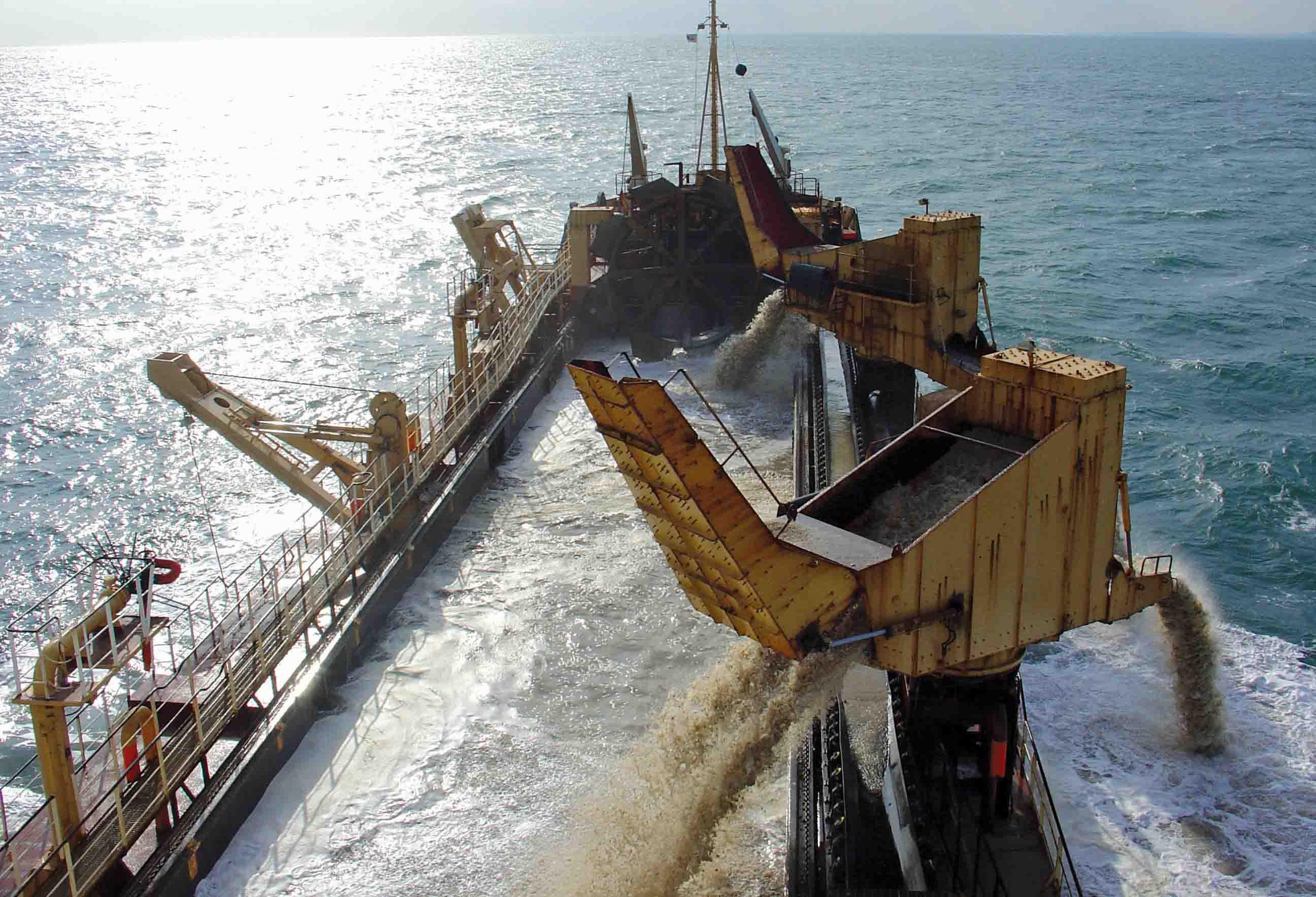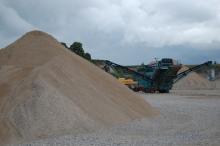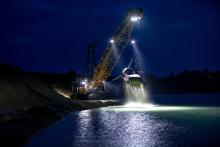
The UK has the world’s largest marine aggregates industry, supplying some 20% of the sand and gravel used in England and Wales, according to the Crown Estate.
The organisation says its leasing programme for the marine aggregates sector includes the delivery of high quality aggregate to the construction industry, realising over £15 million in income (€16.6 million/US$18.25 million) in 2015/16. While construction is the biggest use for aggregates, marine aggregates are used in beach replenishment schemes. Marine sediment is also used in land reclamation schemes to infill areas in ports and harbours or to reclaim land from the sea prior to engineering works.
The
“Yet it provides around a fifth of all the sand and gravel used in England and Wales and, significantly, over half what is required in London. The marine aggregate industry is an essential supplier to the construction industry and, through it, helps support the life of the nation.
“Despite the industry’s small footprint, BMAPA members recognise that the environment in which they operate is sensitive. They accept the responsibility to manage their operations in ways that minimise any effects on the marine environment and its other users. Furthermore, the industry is extracting a finite natural mineral resource that will not be replenished and using fossil fuels to do so.
“There is, therefore, a responsibility upon operators to carefully manage both their licence areas and their production operations to ensure that these valuable resources are able to be used in the most efficient and effective manner possible.”
In November 2006, BMAPA published a sectoral sustainable development strategy to provide a clear policy framework for marine aggregate operations under the recognised “pillars” of social progress, environmental protection, natural resources and economic prosperity. The strategy provides a benchmark against which future progress reports will be measured.
Following the production of its strategy, BMAPA recently published its ninth annual sustainable development report, %$Linker:
And the demand for aggregates is on the increase. World Construction Aggregates, a
Asaba, the political capital of Delta State in Nigeria, a rapidly expanding city along the banks of the Niger River Delta, is among those seeing a growing demand for infrastructure improvement projects, including roads and liveable space along the river.
Recently, two local contractors in the state took delivery of 25.4cm Wolverine Class dredges, designed and manufactured by DSC Dredge at its Greenbush, Michigan, USA facility.
The fast-flowing river brings sand downstream from the country’s interior, causing seasonal flooding and bringing disruption to many lives.
A government plan aims to provide millions of m² of sand for infrastructure improvement, while alleviating flooding problems. Dredging is said to be the
perfect solution to capture this sand as a valuable resource, and use it in the city centre and outlying areas.
A local contractor in Asaba, after deciding to invest in a new dredge, contacted several manufacturers in the USA and Europe, as well as China, where its partners are based. Ultimately, the contractor chose to place a dredge order with DSC Dredge, located in Louisiana, USA.
“We did not want to wait for weeks for parts to come from the other side of the world, with additional lost time dealing with Nigerian customs,” says the managing director. He also points out that DSC’s spare parts policy provides all necessary OEM spares information, so customers can purchase parts at local shops, “allowing them to have options, which results in much lower cost, faster availability and higher profits overall.”
The second Wolverine dredge is operating in Warri, the socio-economic capital of Delta State, and was bought by a marine contractor already established in the dredging business, who says “it is an ideal solution for an area that requires river sand.”
The Wolverine features one-truck portability;






